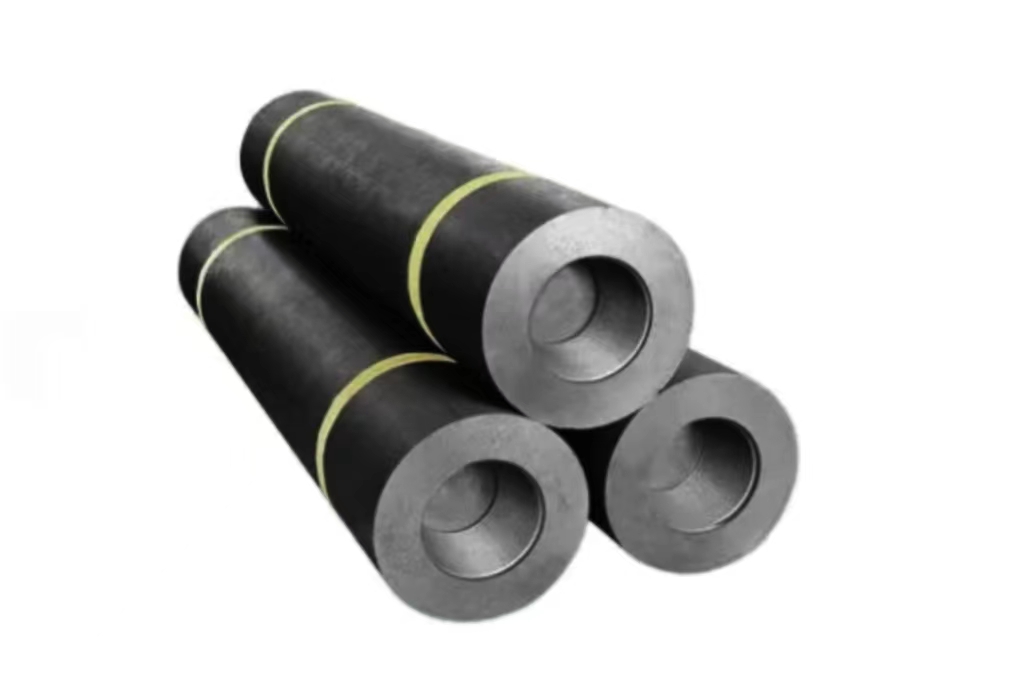It is important to understand the graphite electrode properties when choosing them. Graphite electrodes are fundamental conductors in the electric arc furnace steelmaking process. They generate the high temperatures needed to melt scrap and other materials. In this blog post, we will take a comprehensive look at the properties of graphite electrodes, including density, resistivity, flexural strength, modulus of elasticity, and more.
Table of Contents
ToggleUnderstanding Graphite Electrode Properties
Graphite electrode resistance
The size of the conductivity is generally expressed by resistivity. The bonding between carbon atoms in the graphite crystal layer direction is a covalent bond superimposed on the metal bond, so the graphite layer direction has good conductivity.
The higher the degree of graphitization of the graphite electrode, the more the layer arrangement is close to parallel. So the crystal defects are less, which is conducive to the flow of free electrons, so the resistivity is lower.
What is the density of the graphite electrode?
Bulk density refers to the mass of solid graphite electrodes per unit volume, including pores and cracks. And it belongs to physical properties. The bulk density of graphite electrodes is usually between 1.7 and 2.2g/cm3.
Graphite Electrode Properties-Flexural strength
Flexural strength is the performance of the mechanical properties of the electrode. It refers to the ultimate breaking stress per unit area of the graphite electrode when subjected to bending moment.
Elastic Modulus
It expresses the relationship between the material’s stress and strain, usually using Young’s modulus. At the same time, the elastic modulus of graphite electrodes increases with increasing temperature.
Thermal expansion coefficient
Abbreviated CEC, the phenomenon that the length of a solid material increases with increasing temperature is called thermal expansion. The coefficient of thermal expansion of graphite electrodes is much smaller than that of metals, and the higher the degree of graphitization, the lower the coefficient.
Chemical Properties of Graphite Electrodes
The chemical properties of graphite electrodes mainly depend on the type and purity of the graphite used. It is chemically stable and, therefore, a corrosion-resistant material. At room temperature, carbon is highly inert and does not react chemically with various gases. So graphite electrodes are usually highly resistant to corrosion, oxidation, and other chemicals.


